Abstract
The absence of nitrification in soils rich in organic matter has often been reported. Therefore, competition for limiting amounts of ammonium between the chemolithotrophic ammonium-oxidizing species Nitrosomonas europaea and the heterotrophic species Arthrobacter globiformis was studied in the presence of Nitrobacter winogradskyi in continuous cultures at dilution rates of 0.004 and 0.01 h−1. Ammonium limitation of A. globiformis was achieved by increasing the glucose concentration in the reservoir stepwise from 0 to 5 mM while maintaining the ammonium concentration at 2 mM. The numbers of N. europaea and N. winogradskyi cells decreased as the numbers of heterotrophic bacteria rose with increasing glucose concentrations for both dilution rates. Critical carbon-to-nitrogen ratios of 11.6 and 9.6 were determined for the dilution rates of 0.004 and 0.01 h−1, respectively. Below these critical values, coexistence of the competing species was found in steady-state situations. Although the numbers were strongly reduced, the nitrifying bacteria were not fully outcompeted by the heterotrophic bacteria above the critical carbon-to-nitrogen ratios. Nitrifying bacteria could probably maintain themselves in the system above the critical carbon-to-nitrogen ratios because they are attached to the glass wall of the culture vessels. The numbers of N. europaea decreased more than did those of N. winogradskyi. This was assumed to be due to heterotrophic growth of the latter species on organic substrates excreted by the heterotrophic bacteria.
Full text
PDF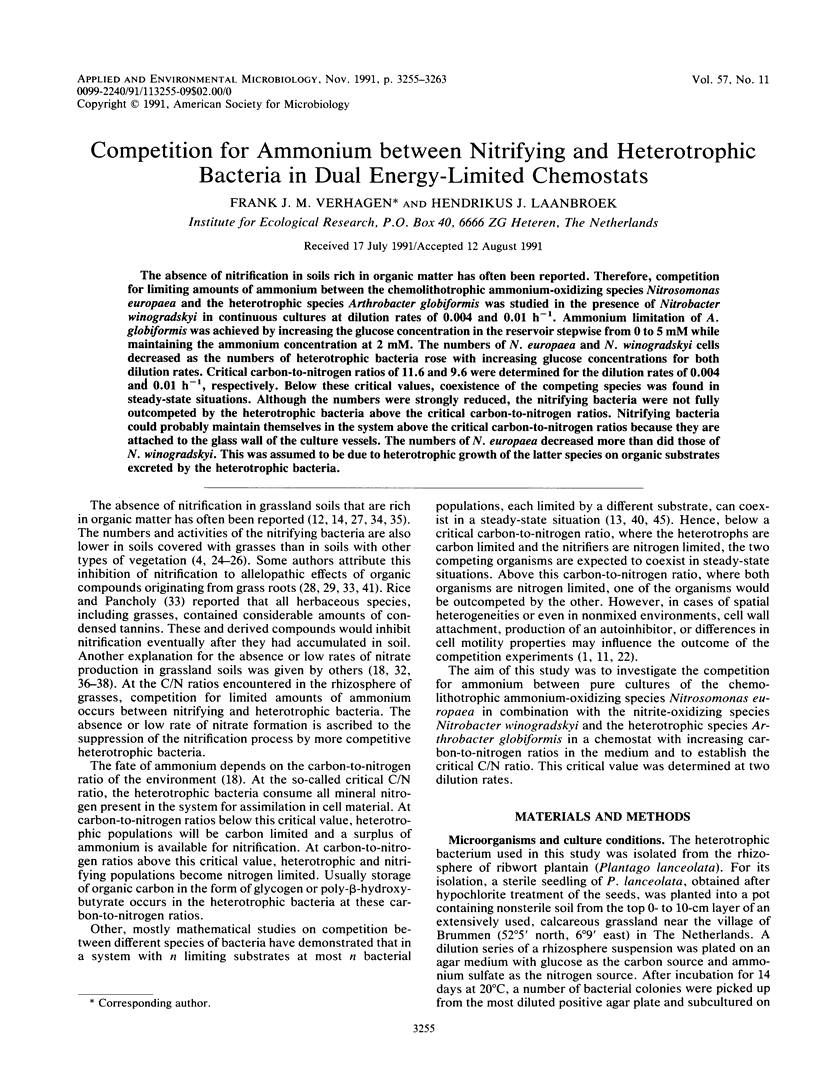
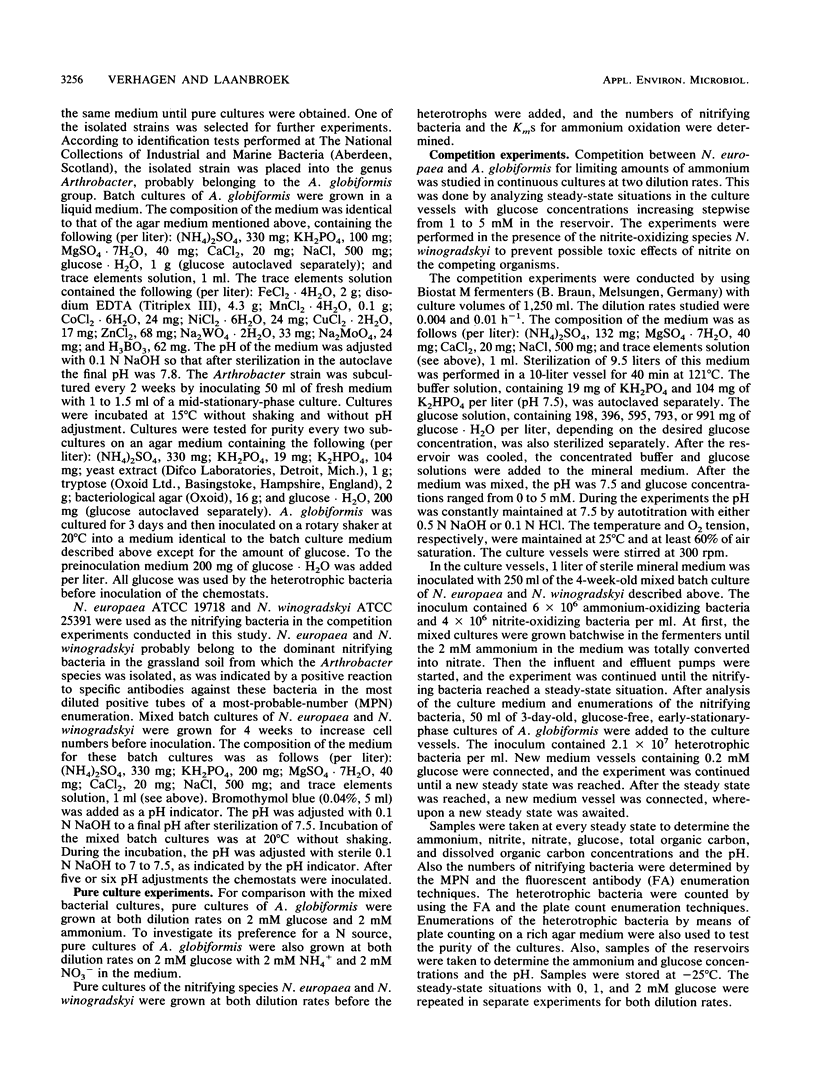
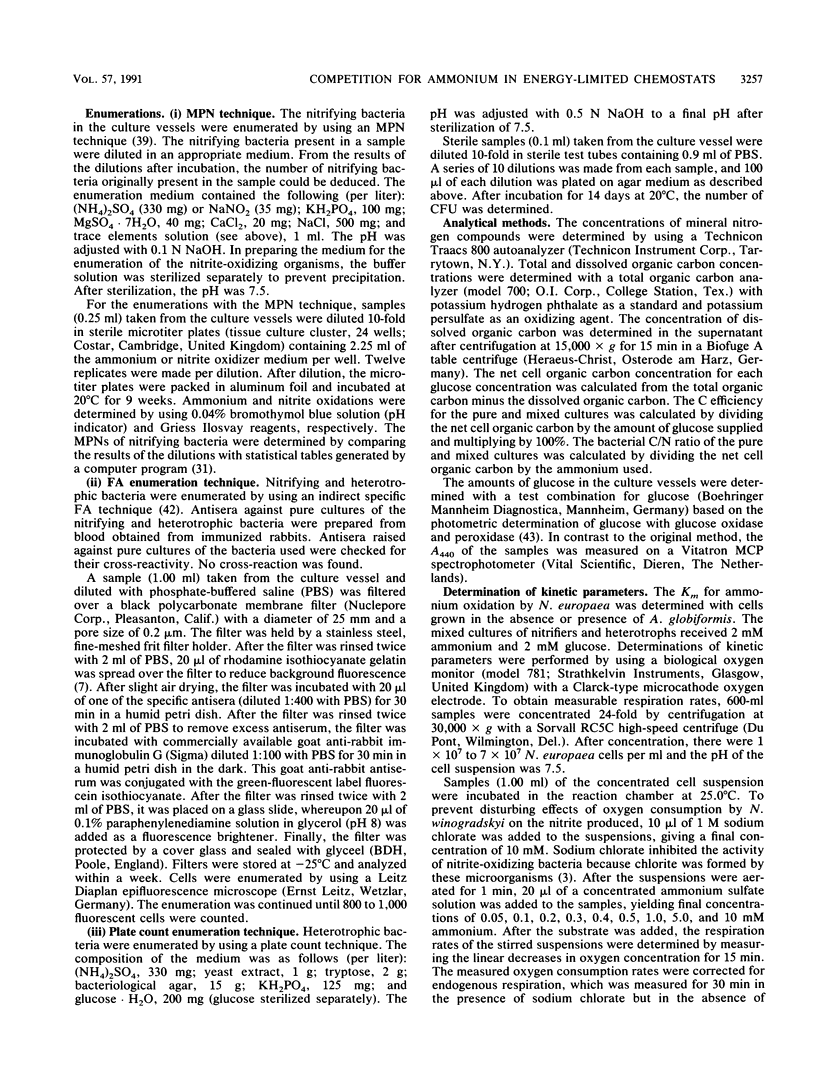
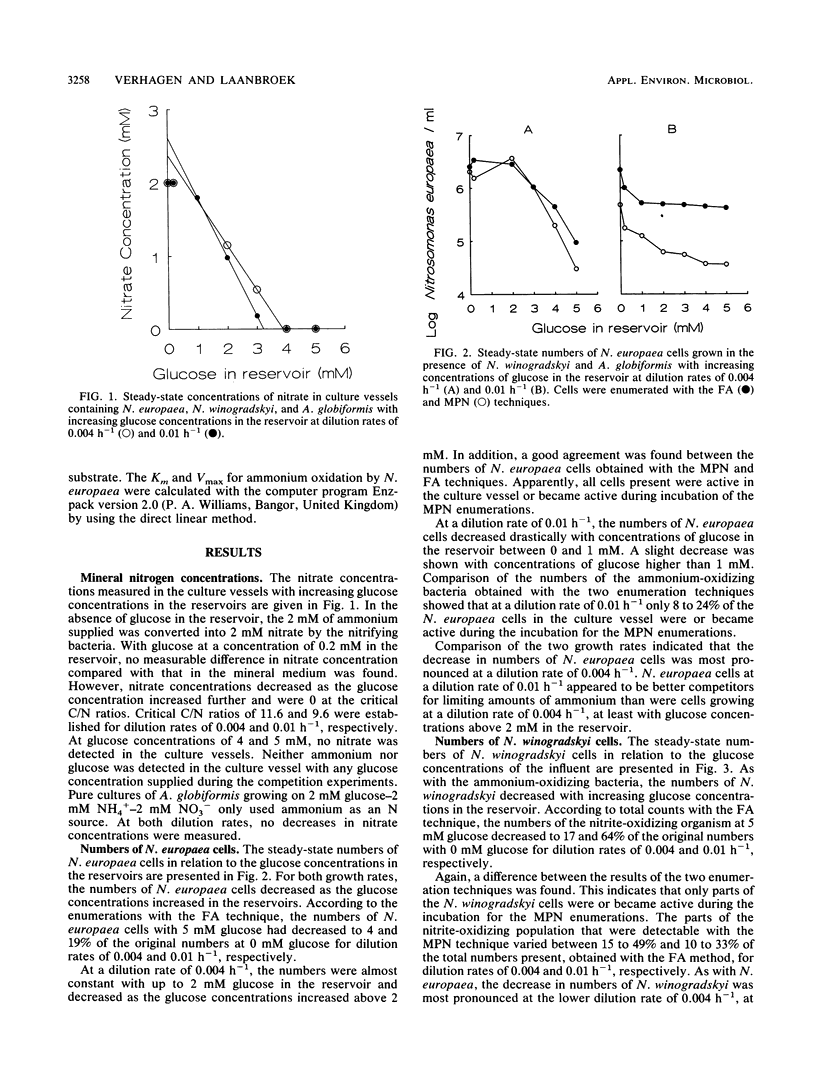
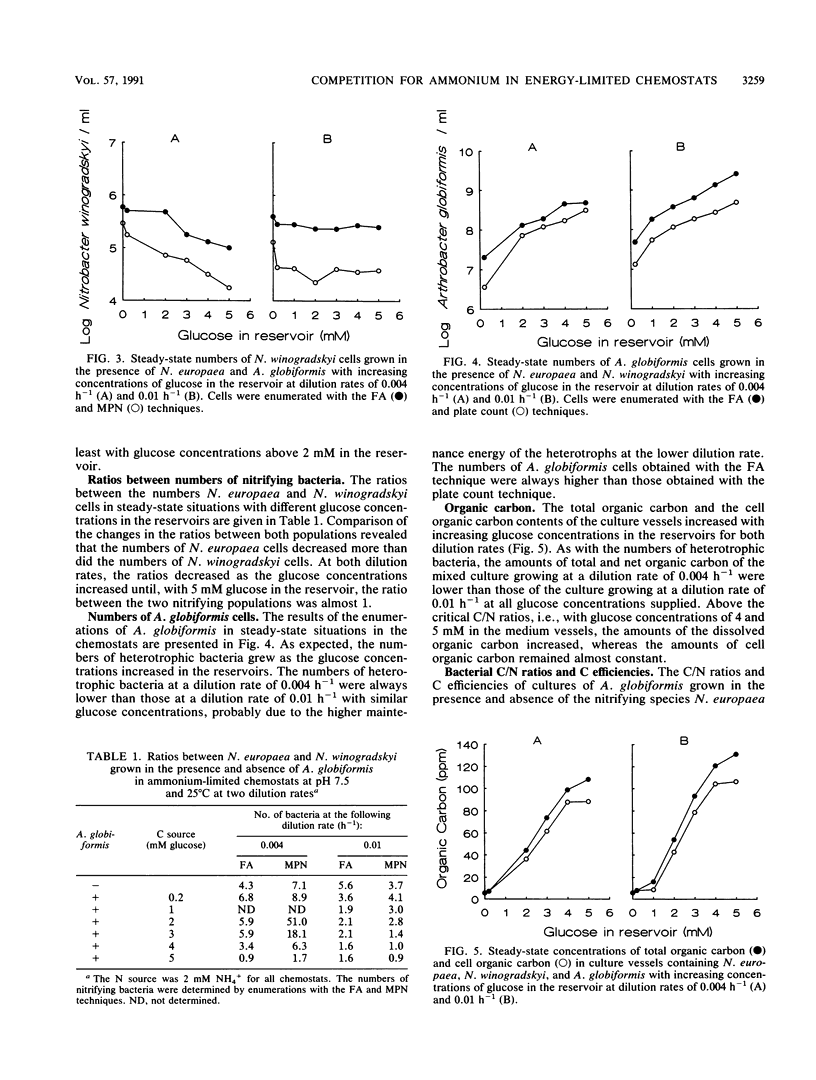
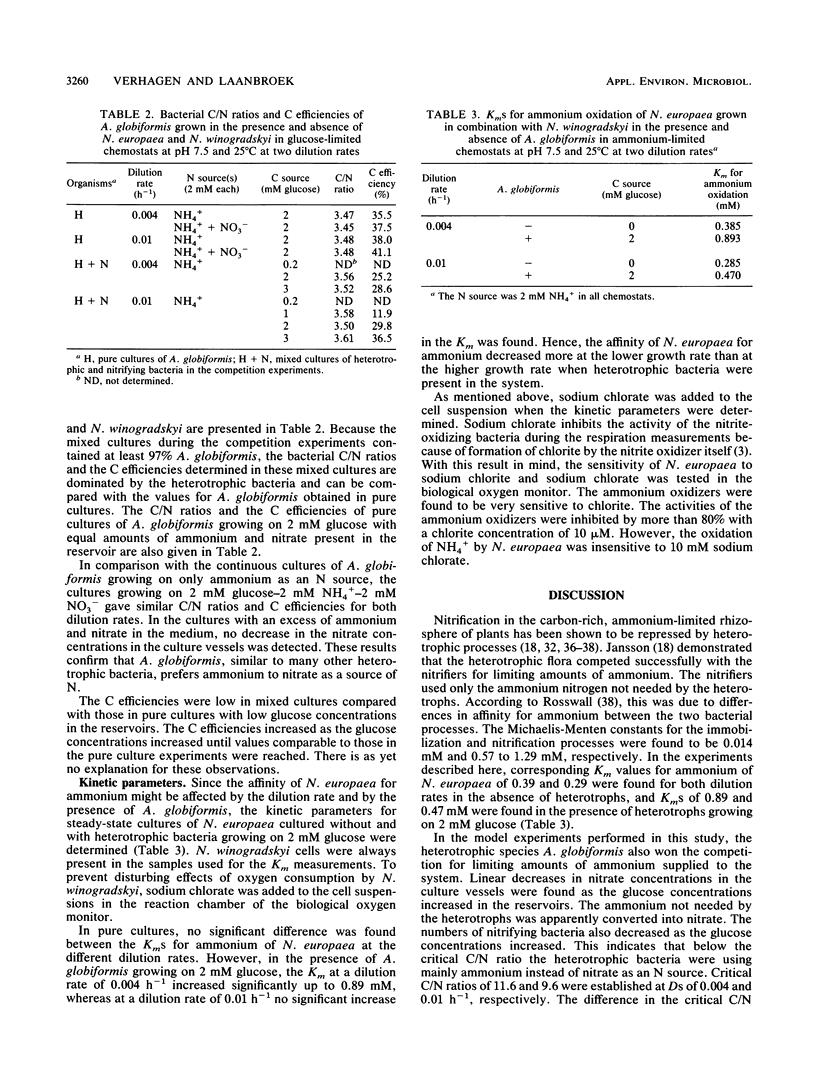
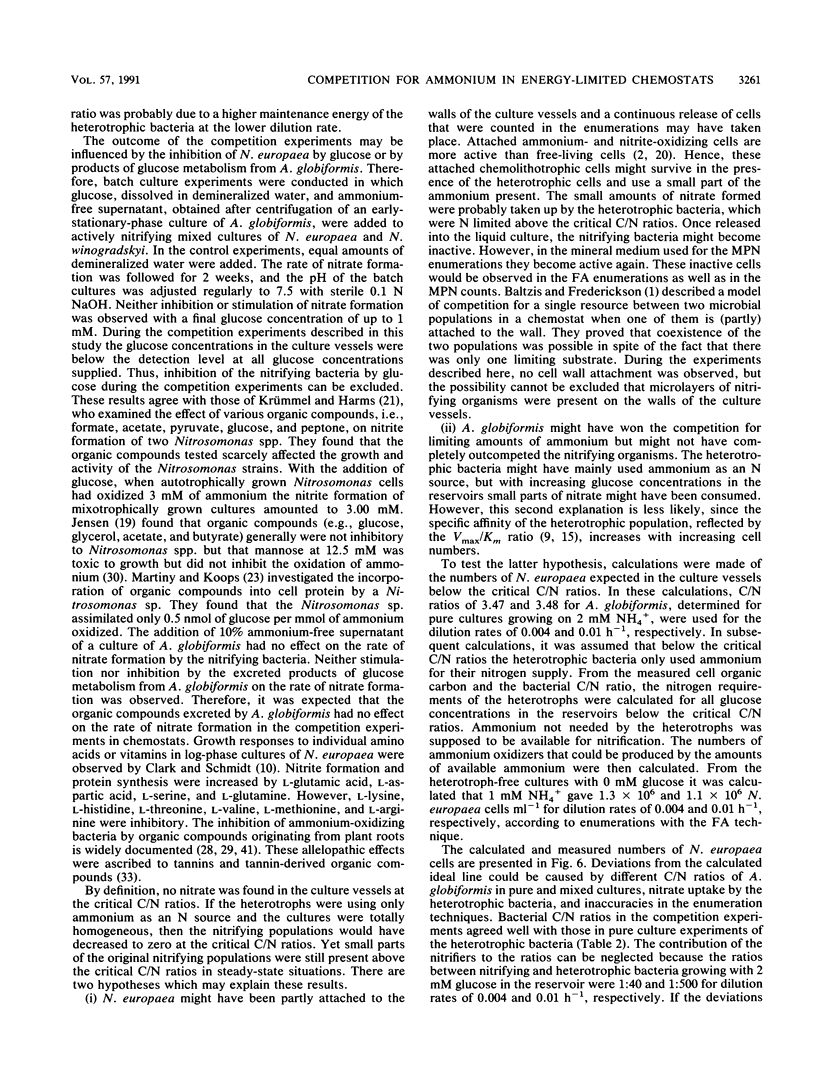
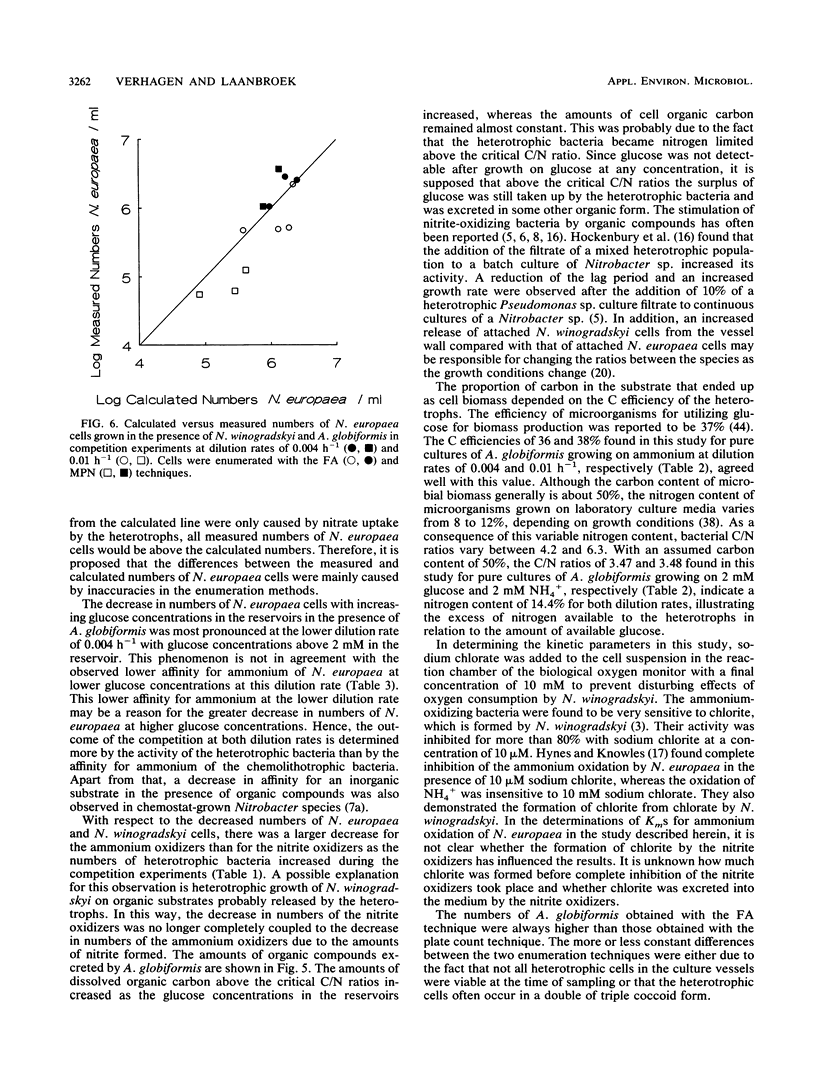
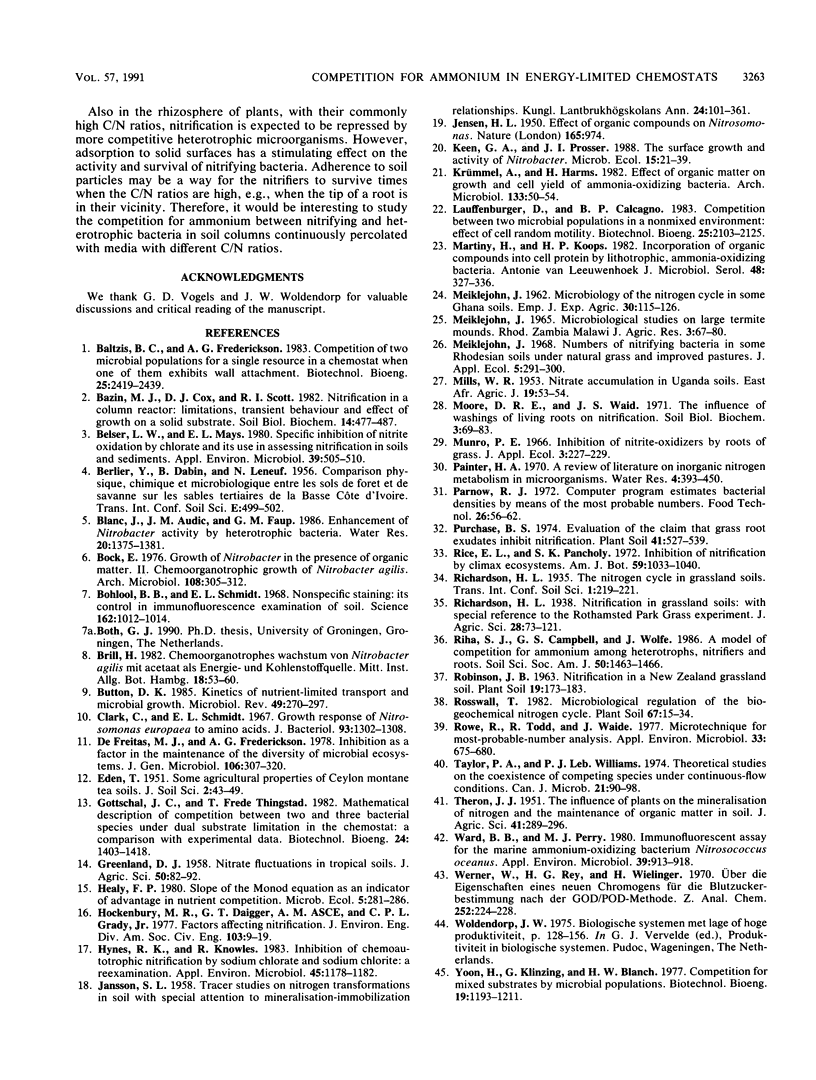
Selected References
These references are in PubMed. This may not be the complete list of references from this article.
- Belser L. W., Mays E. L. Specific inhibition of nitrite oxidation by chlorate and its use in assessing nitrification in soils and sediments. Appl Environ Microbiol. 1980 Mar;39(3):505–510. doi: 10.1128/aem.39.3.505-510.1980. [DOI] [PMC free article] [PubMed] [Google Scholar]
- Bock E. Growth of nitrobacter in the presence of organic matter. II. Chemoorganotrophic growth of Nitrobacter agilis. Arch Microbiol. 1976 Jul;108(3):305–312. doi: 10.1007/BF00454857. [DOI] [PubMed] [Google Scholar]
- Bohlool B. B., Schmidt E. L. Nonspecific staining: its control in immunofluorescence examination of soil. Science. 1968 Nov 29;162(3857):1012–1014. doi: 10.1126/science.162.3857.1012. [DOI] [PubMed] [Google Scholar]
- Button D. K. Kinetics of nutrient-limited transport and microbial growth. Microbiol Rev. 1985 Sep;49(3):270–297. doi: 10.1128/mr.49.3.270-297.1985. [DOI] [PMC free article] [PubMed] [Google Scholar]
- Clark C., Schmidt E. L. Growth response of Nitrosomonas europaea to amino acids. J Bacteriol. 1967 Apr;93(4):1302–1308. doi: 10.1128/jb.93.4.1302-1308.1967. [DOI] [PMC free article] [PubMed] [Google Scholar]
- Hynes R. K., Knowles R. Inhibition of chemoautotrophic nitrification by sodium chlorate and sodium chlorite: a reexamination. Appl Environ Microbiol. 1983 Apr;45(4):1178–1182. doi: 10.1128/aem.45.4.1178-1182.1983. [DOI] [PMC free article] [PubMed] [Google Scholar]
- JENSEN H. L. Effect of organic compounds on nitrosomonas. Nature. 1950 Jun 17;165(4207):974–974. doi: 10.1038/165974a0. [DOI] [PubMed] [Google Scholar]
- Martiny H., Koops H. P. Incorporation of organic compounds into cell protein by lithotrophic, ammonia-oxidizing bacteria. Antonie Van Leeuwenhoek. 1982;48(4):327–336. doi: 10.1007/BF00418286. [DOI] [PubMed] [Google Scholar]
- Rowe R., Todd R., Waide J. Microtechnique for most-probable-number analysis. Appl Environ Microbiol. 1977 Mar;33(3):675–680. doi: 10.1128/aem.33.3.675-680.1977. [DOI] [PMC free article] [PubMed] [Google Scholar]
- Taylor P. A., leB Williams P. J. Theoretical studies on the coexistence of competing species under continuous-flow conditions. Can J Microbiol. 1975 Jan;21(1):90–98. doi: 10.1139/m75-013. [DOI] [PubMed] [Google Scholar]
- Ward B. B., Perry M. J. Immunofluorescent Assay for the Marine Ammonium-Oxidizing Bacterium Nitrosococcus oceanus. Appl Environ Microbiol. 1980 Apr;39(4):913–918. doi: 10.1128/aem.39.4.913-918.1980. [DOI] [PMC free article] [PubMed] [Google Scholar]
- Yoon H., Klinzing G., Blanch H. W. Competition for mixed substrates by microbial populations. Biotechnol Bioeng. 1977 Aug;19(8):1193–1210. doi: 10.1002/bit.260190809. [DOI] [PubMed] [Google Scholar]


